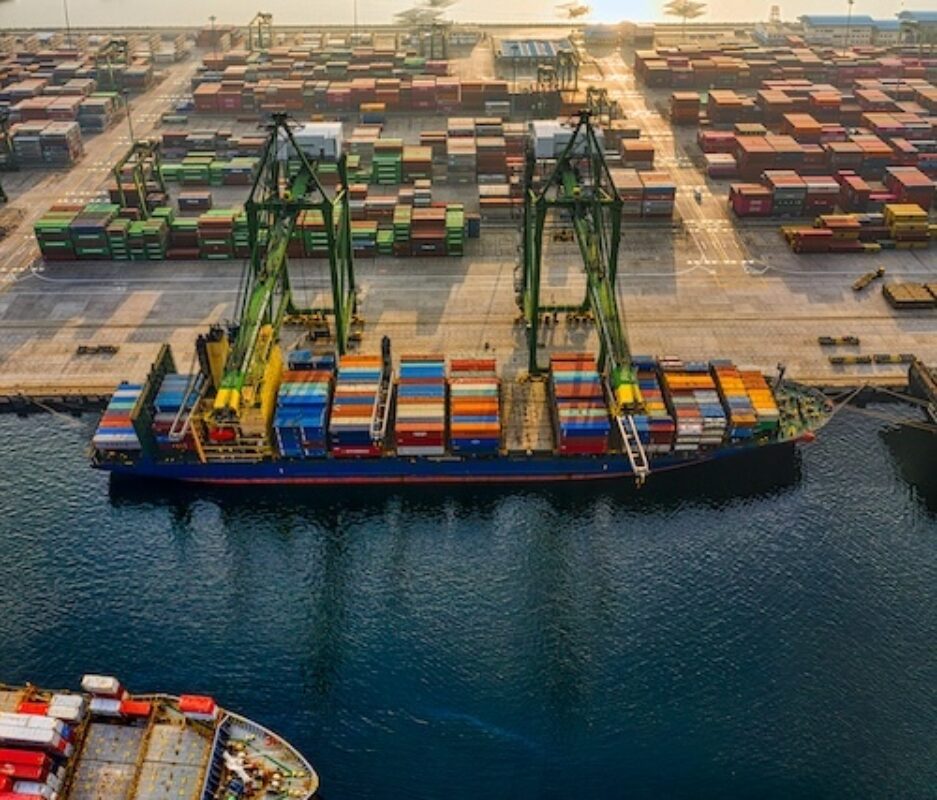The landscape of chemical distribution is evolving rapidly, with sustainability taking centre stage as a defining challenge and opportunity. As global priorities shift towards environmental stewardship, chemical distribution companies must adapt to meet these expectations. Sustainability is no longer a distant goal—it is a strategic imperative shaping the industry's future.
This blog explores why sustainability matters, the key strategies for achieving it, and the immense benefits it offers for businesses, society, and the planet.
The rising importance of sustainability
A global expectation
Today’s businesses operate in a world where sustainability is a non-negotiable priority. Customers, investors, and regulators alike are demanding transparency and accountability in environmental practices. For the chemical distribution sector, this means adopting policies that minimise environmental impact while maintaining operational excellence.
Governments worldwide are tightening regulations to curb greenhouse gas emissions, reduce waste, and enforce safer handling of chemical products. Complying with these laws is critical—not only to avoid penalties but also to align with global sustainability goals and customer expectations.
Industry-specific challenges
Chemical distribution is a complex process involving the storage, transportation, and handling of diverse substances. This complexity magnifies the need for sustainable practices. From mitigating hazardous material risks to reducing the carbon footprint of logistics networks, distributors are under pressure to balance environmental considerations with business efficiency.
Strategies for sustainable chemical distribution
1. Reducing carbon footprints
Carbon emissions from transportation and facility operations represent a significant environmental challenge for chemical distributors. Companies can reduce their carbon footprints by:
Optimising logistics networks to minimise travel distances.
Transitioning to renewable energy for warehouses and office spaces.
Upgrading fleets with electric or hybrid vehicles.
These changes not only lower emissions but also deliver long-term cost savings and improve resilience against fluctuating fuel prices.
2. Adopting circular economy principles
The circular economy aims to minimise waste and maximise resource efficiency by reusing and recycling materials. Chemical distributors can contribute by:
Encouraging returnable packaging systems for customers.
Implementing recycling programs for chemical containers.
Offering bio-based alternatives to traditional chemicals.
Such initiatives address environmental concerns while appealing to eco-conscious customers seeking sustainable supply chain solutions.
3. Enhancing supply chain transparency
Sustainability is built on trust, and transparency is essential for building that trust. Modern technologies, such as blockchain, enable real-time tracking of chemical products from production to delivery. By providing detailed data on sourcing, production methods, and environmental impact, distributors can meet the growing demand for ethical and sustainable practices.
The role of innovation in sustainability
Green chemistry advancements
Green chemistry focuses on designing chemical processes and products that reduce or eliminate hazardous substances. By integrating these innovations into their offerings, distributors can help clients meet sustainability goals without compromising on quality or performance.
Digital transformation
Digital tools and automation are revolutionising chemical distribution. Predictive analytics optimises inventory management, reducing waste from overstocking or expiry. Similarly, automated warehousing systems enhance energy efficiency, ensuring that sustainability becomes a seamless part of operations.
The benefits of embracing sustainability
Meeting customer expectations
Clients are increasingly prioritising sustainability in their procurement decisions. By embedding environmental values into their business models, chemical distributors can attract and retain eco-conscious customers, securing long-term relationships built on shared principles.
Strengthening regulatory compliance
Sustainability efforts often align with existing and emerging regulations, reducing the risk of legal challenges. Proactively adopting green practices demonstrates foresight and positions companies as leaders in their field.
Unlocking market opportunities
Sustainability drives innovation, opening doors to new markets and product offerings. For instance, bio-based chemicals and renewable packaging solutions are rapidly growing sectors that offer lucrative opportunities for forward-thinking distributors.
Enhancing brand reputation
A robust sustainability strategy strengthens a company’s brand image, showcasing its commitment to environmental and social responsibility. This not only attracts customers but also appeals to skilled talent seeking purposeful careers with value-driven organisations.
Looking ahead to 2025 and beyond
Sustainability is no longer a passing trend—it is the foundation of future success. For chemical distribution companies, the path to sustainability requires bold action, innovative thinking, and a long-term vision.
As we approach 2025, embracing sustainability will allow businesses to navigate evolving challenges, meet the expectations of increasingly informed stakeholders, and contribute to a healthier planet. The journey may demand significant effort, but the rewards—enhanced resilience, competitive advantage, and a legacy of positive impact—are undeniably worth it.
At East Harbour Group, we are committed to leading this transformation. By investing in sustainable solutions, fostering transparency, and prioritising innovation, we aim to empower our clients and partners to thrive in a sustainable future.
Are you ready to join us on this journey? By working with us, you can help create a more sustainable, responsible future for the chemical distribution industry.

